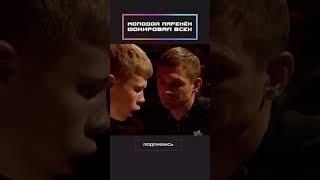Комментарии:

Yeah, it's too often critics gravitate towards serious or somber works from a filmmaker; they forget it's good to laugh from time to time.
Ответить
génial
Ответить
Thanks for the wonderful lesson.
Ответить
The master...mistsz...Krzysztof kielslowski...the greatest
Ответить
What a genius!! What an absolute genius!!
Ответить
Nothing better than watching such a brilliant director explaining his art to you
Ответить
You can sense the intense concentration of thought behind every frame in his films and White is no exception
Ответить
Where I can find all the videos like this one
Ответить
name of the complet documentary pls?
Ответить
an atheist angel who tries to replace God by observing humanity and noticing their every details an nuances.
Ответить
I don't want to sound dismissive of Kieslowski. I love his work. The basic method he uses to get audiences to pay attention to detail is frequent close ups of the main characters. (This is a silent movie technique that John Ford often used.) When you're waiting in a crowded place, spend some time watching someone who doesn't notice. (Don't choose anyone handsome or pretty or young) and see if by simply observing them you don't feel a connection, empathy and respect. (Revulsion is also possible.) Second, there is no standard plot, so we don't simply 'plug into' a storyline we're already familiar with. (How many times have you 'just watched a movie...' and until you saw some detail you remember you didn't realize you'd seen it before?) And of course with Kieslowski the action is the details and basic human gestures. In Red the Judge, dog and the woman(Juliette Binoche) coming physically together. I'm always amazed at how profoundly moved I often feel when not much seems to have happened. Of course with White (Blanc) the endless moments of humiliation are painful to experience.
"This process gets the audience used to the way we tell stories." The clear implication for me is of course, Make more Kieslowski - type movies.
The general rule, and perhaps stereotyping, is that Polish directors are probably the most successfully intellectual of filmmakers. You don't have to take a film class to understand, but it helps. (I don't really care much for art and movies that have to be explained. That just means they failed to communicate. I've photographed art that I paid no attention to, because I was busy with the technical details, but it still manages to communicate what it's about.) Wajda of course criticized communist control and repression in otherwise pro communist films. I felt this but didn't quite understand what was happening. That film professor Herb Eagle, also mentioned that we (Americans) watch a movie then go do something else. Poles, after a movie, go to the coffee shop for the next several hours drink tea or coffee, chain smoke and discuss the movie in detail. The French also do this, but they end up thinking Jerry Lewis is a genius. So the Poles must be better at it.



























